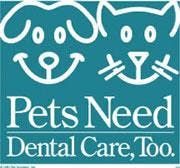Readers' Forum
'Normal' people have body art too
Dear RDH:
I feel the need to vent. I just read the article (Thinking Sharply" column) in the November issue about patients with tattoos and body piercings. I feel like it unfairly generalizes about "these people." The studies it was based upon were done in alternative school settings and clinics. What about people with body art in regular schools and everyday life? I know a lot of people with both tattoos and body piercings, myself included, that have very healthy body images, are not risk takers, have never attempted suicide, used drugs, or any of the other attributes said to be correlated with these individuals with piercings and tattoos.
Maybe there was a time that tattoos and body piercings could indicate what type of person someone might be, but body art is becoming more common, and I think it is very unfair to make these generalizations. I have to say that I know just as many people who look so-called "normal" who have serious issues and problems as well. Maybe I'm a bit sensitive because I fall into this category, but I see body art as no more than a form of self expression.
Also, the fact that these studies were conducted in the settings that they were bothers me. Aren't these people more likely to engage in high-risk behaviors anyway? Isn't it likely that these are the reasons that they are in these settings in the first place? The samples of subjects used for the studies were definitely not representative of the population as a whole.
Body art is becoming part of our culture, as it is has been part of many cultures throughout the world already. We're taught not to make judgments about other people's cultures; why does it not seem to apply to the culture of different generations within the same country or region, though? Just one hygienist's opinion.
Mandi Smith, RDH
Lansdale, Pennsylvania
The compassion is there
Dear RDH:
Thank you for your response from Dr. Jeanette Gallagher (November 2003 issue) to my article "Rolling With The Punches" (September 2003 issue). I appreciate her perspective, but I regret her perception of me as having an attitude of superiority. I feel some clarification might be helpful. The article was not intended to be a discourse on the politics of Medicaid. The purpose was to help hygienists make ethical decisions based on my own personal experience as an example. To this end, I feel the article had merit based on the hygiene phone calls I received supporting this.
I have huge respect for people who succeed despite challenging circumstances. For the people that Medicaid helps, who are also trying to help themselves, I have respect. The system, funded by our taxes, serves many that deserve our help.
I have also seen the system flagrantly abused by patients who do not respect their appointment times, clearly place no value on the free care they do get, and are perfectly capable of supporting themselves, but prefer government handouts. I have a problem supporting these people with my tax dollars. I don't think this makes me superior. Although if it makes me idealistic, then I'm guilty as charged.
As for compassionate care, I believe I said it best in my article when I stated that "the children and babies that show up don't know anything about the system. They ... need our help. Our responsibility ... is to deliver that care to the best of our ability." As a matter of fact, I have worked, on and off, in this particular office for over 10 years, precisely because I love working with children, and am excellent at transforming frightened children into confident, compliant, enthusiastic, and fear-free patients. (See "Secrets to the Perfect Pediatric Patient" coming out in the December 2003 issue of Dentistry Today). I certainly believe in, and deliver, compassionate, comprehensive care for anyone in my chair regardless of their background. I just wish they would do just that, be in my chair when they have promised to do so.
I think Dr. Gallagher and I really are congruent in our philosophy as I, too, believe in working with people to "enrich their lives with compassion and insight." I thank her once again for her concern and feedback.
Janet Hagerman, RDH, BS
Cumming, GA 30041
No defense necessary, if you have the degree
Dear RDH:
I now would like to respond to all of the letters I have read in your magazine regarding the Alabama Dental Hygiene Program. I never felt the need to respond but I now have an overwhelming compulsion to say something. I will make this short and to the point.
Everytime I am asked where I received my dental hygiene degree, I respond, "Indiana University" — end of conversation. No one has ever asked me how many hours I spent in the classroom or how many patients I saw in clinicals. There is no reason to. My diploma speaks for itself.
I cannot imagine always having to defend my qualifications or the education I received. So, I will say it because I know there are many other hygienists out there wanting to also: For those of you in the ADHP, go to college! Stop feeling like you always have to defend yourself with the ongoing number of hours you spent in class, or how many patients you saw, or your continuing education. We all have done what you have, but much, much more. If I were a dental patient in the state of Alabama, no one would touch me without a degree from an accredited university and a valid license. Get your degree and earn the salary you are entitled to.
Cindy Hallam, RDH
Logansport, Indiana
The "informal" side of this month's cover alludes to the model's side business on eBay. However, most people who recognize the model are likely patients of the Houston-based dental hygienist. And, of course, some RDH readers will recognize Stephanie Bass because of her involvement in dental hygiene associations in Texas and Houston. RDH, though, is guilty of a little nepotism here. Until she mentioned it in an email, we had no idea that Bass is the niece of photographer Tom Wehde, who has photographed many RDH and Dental Economics covers. So we decided to let the proud uncle do the honors this month too.
Bass delivered the twins on the cover, Bailey and Christian, in 2000. So we felt like we also had the natural link to our annual acknowledgement of National Children's Dental Health Month.
Bass is a 1993 graduate from the University of Texas Health Science Center Dental Branch in Houston. She is a die-hard supporter of organized dental hygiene. "There was never a question to join; it was my duty as a professional."
She has served on numerous committees on both the state and Greater Houston societies. Her familarity with the Internet led her to get involved with the associations' Web sites.
"Since the development of the Internet and email, the society needed to get plugged into the rest of the world, so I developed and currently maintain the GHDHS Web site," she said. "Our most impressive section is the web-employment which brings local dentists and hygienists' together for much needed jobs. After my experience with our Web site, I received the opportunity to update and now maintain the TDHA's Web site. It is such a joy to do so much for the hygiene profession."
Bass also owns Cotton-Tales Consignment (www.cot ton-tales.com), and she is an active seller on eBay. "I have been buying and selling items, mostly clothing,for three years now, very successfully.I recently started my own business called Cotton-Tales.It is worldwide consignment via eBay.I am reselling high quality items for very reasonable prices on a consignment level."
National Pet Dental Health Month celebrates its 10th anniversary this month. Due to public awareness, dental practices participating in related activities report a significant increase in client requests for dental services and products for pets.
Clients can visit www.petdental.com for games, trivia, and more information about home dental care for pets. Or, dental practices can obtain a free National Pet Dental Health Month Kit by calling (877) 883-5251.
National Pet Dental Health Month is sponsored by the American Veterinary Dental Society, Academy of Veterinary Dentistry, American Veterinary Dental College (AVDC), the American Veterinary Medical Association, and Hill's Pet Nutrition, Inc.
The Academy of Veterinary Dentistry is an international organization of veterinarians with a special interest in the dental care of animals. Most members are active practitioners, serving the oral health needs of their patients, including exotic animals in the wild and at exhibition parks and zoos.
The AVDC is the board-certification organization for veterinary dentists. A subsidiary of the AVDC is the Veterinary Oral Health Council (VOHC), which is charged with testing and approving products used in dental hygiene and oral disease prevention of animals, much like that of products approved for our own (human) dental hygiene.
The AVDC also maintains a liaison with the American Dental Hygienists' Association. A California hygienist, Carol Weldin, RDH, currently serves as the liaison.
To submit letters to the editor for publication in Readers' Forum, send by:• Mail — P.O. Box 3408, Tulsa, OK 74101
• E-mail — [email protected]
• Fax — (918) 831-9804
Besides a "signature," letters also must indicate the city and state where the writer resides or practices.


